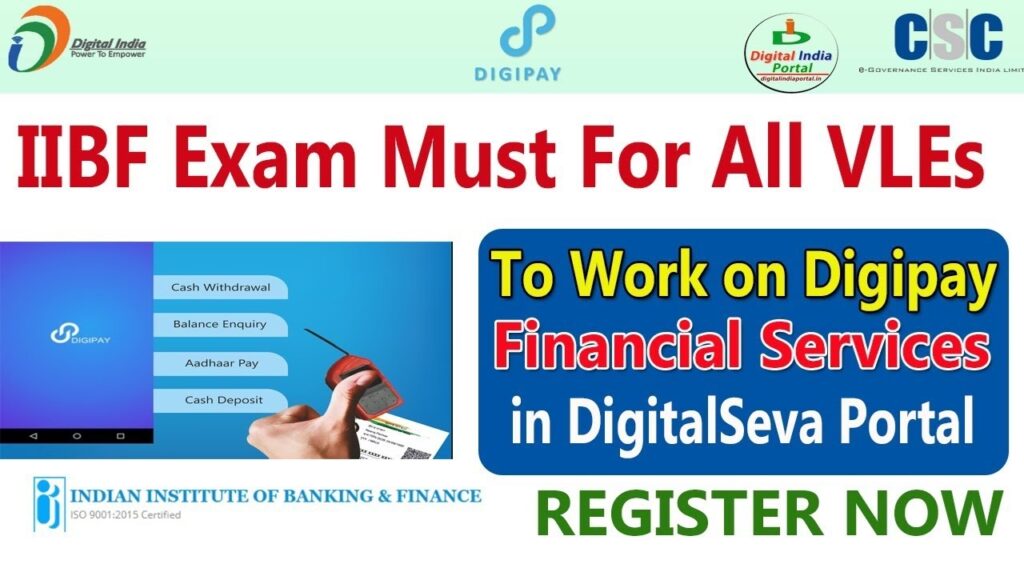Comprehensive Review of Domestic Money Transfer Framework
IIBF Mandatory for VLEs, RBI notifications. The Reserve Bank of India (RBI) has recently undertaken a comprehensive review of the Domestic Money Transfer (DMT) framework, reflecting significant advancements in banking infrastructure and digital payment systems. This review, which builds upon the initial framework introduced in 2011, aims to enhance the efficiency and security of money transfer services across the country.
Evolution of the Domestic Money Transfer Framework
The original DMT framework, introduced by the RBI in October 2011, laid the groundwork for secure and efficient domestic money transfers. Over the years, the banking landscape in India has undergone substantial transformation. The proliferation of banking outlets, advancements in digital payment systems, and streamlined Know Your Customer (KYC) processes have provided users with a plethora of digital options for transferring funds.
Key Changes in the Domestic Money Transfer Framework
Enhanced Record-Keeping for Cash Pay-out Service
To bolster the security and traceability of transactions, remitting banks are now required to obtain and maintain comprehensive records of the beneficiary’s name and address. This measure ensures that all cash pay-outs are properly documented and traceable, thereby reducing the risk of fraudulent activities.
Strengthened Verification for Cash Pay-in Service
In an effort to enhance the verification process for cash pay-ins, remitting banks and their Business Correspondents (BCs) must now register the remitter using a verified cell phone number and a self-certified Officially Valid Document (OVD). This requirement aligns with the Master Direction – Know Your Customer Direction 2016, which has been periodically updated to reflect current best practices.
Furthermore, each transaction conducted by the remitter must be validated through an Additional Factor of Authentication (AFA), adding an extra layer of security to the process. Remitting banks and their BCs are also mandated to comply with the provisions of the Income Tax Act, 1961, and related regulations concerning cash deposits.
The remitter’s details must be included in the Immediate Payment Service (IMPS) or National Electronic Funds Transfer (NEFT) transaction message. Additionally, the transaction message should feature an identifier to distinguish cash-based remittances from other types of fund transfers.
Exclusion of Card-to-Card Transfers
The updated DMT framework explicitly excludes guidelines on Card-to-Card transfers, which will instead be governed by specific guidelines and approvals granted for such instruments. This exclusion aims to streamline the DMT framework and focus on enhancing the security and efficiency of cash-based remittances.
Continuation of Previous Instructions and Transaction Limits
While the updated framework introduces several new measures, all other instructions outlined in the original circular dated October 5, 2011, remain applicable. This includes maintaining the limits on the size of transactions, ensuring consistency and continuity in the application of the DMT framework.
Effective Date and Legal Basis
The revised DMT framework will come into effect on November 1, 2024. This circular is issued under Section 18, read in conjunction with Section 10(2) of the Payment and Settlement Systems Act, 2007 (Act 51 of 2007). This legal foundation underscores the RBI’s commitment to maintaining a robust and secure payment system in India.
Conclusion
The updated Domestic Money Transfer framework represents a significant step forward in enhancing the security, efficiency, and traceability of money transfer services in India. By incorporating advanced verification measures, comprehensive record-keeping requirements, and streamlined guidelines, the RBI aims to foster a more secure and user-friendly payment ecosystem. As the new framework comes into effect, stakeholders, including banks and payment system operators, must ensure compliance with the updated guidelines to facilitate seamless and secure domestic money transfers.

